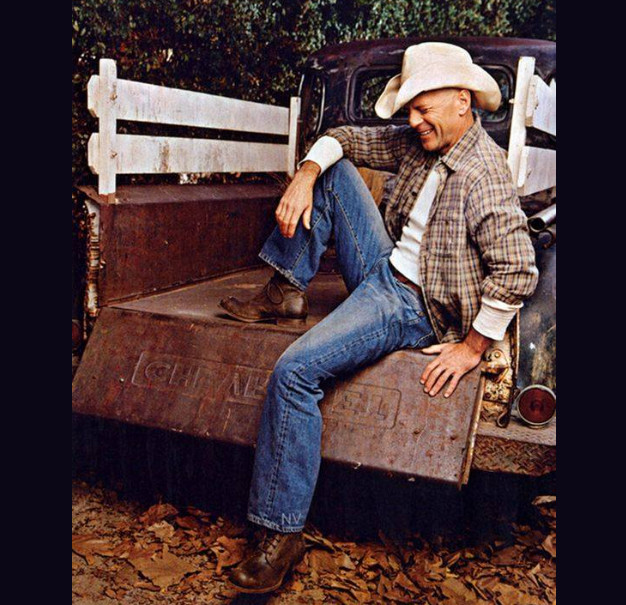When we think of Bruce Willis, we often conjure images of his tough-guy persona, his charismatic performances, and his knack for delivering unforgettable one-liners. However, amidst the explosions, gunfights, and witty banter, there lies another element that has played a crucial role in shaping the cinematic experiences associated with Bruce Willis’s films—the music. While Willis may not be renowned for starring in movies known primarily for their soundtracks, there are several notable exceptions where the music has left an indelible mark on the collective consciousness of audiences worldwide. In this exploration, we delve into three of Bruce Willis’s most memorable movie soundtracks, each offering a unique auditory journey that enhances the overall cinematic experience.
1. Pulp Fiction (1994)
Quentin Tarantino’s Pulp Fiction is a tour de force of cinematic brilliance, a genre-defying masterpiece that continues to captivate audiences decades after its release. Central to the film’s enduring legacy is its eclectic and carefully curated soundtrack, which seamlessly weaves together a diverse array of musical genres, from surf rock to soul, to create a sonic tapestry that mirrors the film’s bold and unconventional narrative.
Bruce Willis’s memorable turn as the lovable but flawed boxer Butch Coolidge is enhanced by the film’s iconic soundtrack, which features standout tracks such as Dick Dale’s “Misirlou,” Al Green’s “Let’s Stay Together,” and Chuck Berry’s “You Never Can Tell.” These songs not only serve as the backdrop to key moments in the film but also contribute to its overall mood and atmosphere, adding layers of depth and complexity to Tarantino’s meticulously crafted universe.
Perhaps the most iconic musical moment in Pulp Fiction occurs during the adrenaline-fueled twist contest scene, where Uma Thurman’s Mia Wallace and John Travolta’s Vincent Vega take to the dance floor to the infectious rhythms of Chuck Berry’s “You Never Can Tell.” This electrifying sequence, underscored by Berry’s infectious guitar riffs and Thurman’s mesmerizing dance moves, epitomizes the seamless integration of music and cinema for which Tarantino’s films have become synonymous.
2. Die Hard (1988)
Regarded as one of the greatest action films of all time, Die Hard catapulted Bruce Willis to superstardom and forever changed the landscape of the action genre. Central to the film’s pulse-pounding intensity is its iconic score, composed by the legendary Michael Kamen, which perfectly complements the high-octane thrills and suspense of John McTiernan’s explosive masterpiece.
From the haunting strains of “Ode to Joy,” which serves as the film’s recurring musical motif, to the adrenaline-fueled crescendos that accompany the film’s heart-stopping action sequences, Kamen’s score elevates Die Hard to cinematic heights, imbuing each moment with a sense of urgency and excitement that keeps audiences on the edge of their seats.
In addition to Kamen’s original score, Die Hard also features several memorable songs that further enhance the film’s gritty atmosphere, including Run-D.M.C.’s “Christmas in Hollis,” which plays during a pivotal scene, and Beethoven’s “Symphony No. 9 in D Minor,” which serves as a thematic anchor throughout the film. Together, these musical elements contribute to the timeless appeal of Die Hard and solidify its status as a classic of the action genre.
3. Armageddon (1998)
Directed by Michael Bay and featuring an ensemble cast led by Bruce Willis, Armageddon is a sci-fi action extravaganza that pits humanity against an impending asteroid apocalypse. Central to the film’s epic scope and emotional resonance is its powerhouse soundtrack, which features an all-star lineup of rock and pop hits that capture the film’s larger-than-life spectacle and heartfelt moments of human drama.
Led by the iconic power ballad “I Don’t Want to Miss a Thing” by Aerosmith, which became synonymous with the film’s sweeping romance between Willis’s character, Harry Stamper, and Liv Tyler’s Grace Stamper, the Armageddon soundtrack is a veritable treasure trove of chart-topping hits. From Bon Jovi’s anthemic “Wanted Dead or Alive” to Shania Twain’s uplifting “From This Moment On,” each song serves as a sonic backdrop to the film’s epic set pieces and emotional beats, enhancing the overall cinematic experience and leaving a lasting impression on audiences worldwide.
In addition to its chart-topping singles, the Armageddon soundtrack also features an original score by renowned composer Trevor Rabin, which adds layers of depth and emotion to the film’s climactic moments. Rabin’s stirring orchestral arrangements, combined with the film’s explosive visuals and heart-wrenching performances, create a symphony of sight and sound that elevates Armageddon to epic proportions.
Conclusion
While Bruce Willis may not be known for starring in movies that are primarily remembered for their soundtracks, there are several notable exceptions where the music has played a pivotal role in shaping the cinematic experience. From the eclectic sounds of Pulp Fiction to the pulse-pounding intensity of Die Hard and the epic spectacle of Armageddon, these films showcase the transformative power of music to enhance storytelling, evoke emotion, and immerse audiences in unforgettable cinematic worlds.
As Bruce Willis continues to entertain audiences with his iconic performances and larger-than-life characters, one thing is clear—the music behind the man plays a crucial role in elevating his films from mere entertainment to timeless classics that resonate across generations. Whether it’s the surf rock grooves of Pulp Fiction, the adrenaline-fueled beats of Die Hard, or the epic power ballads of Armageddon, the music behind Bruce Willis’s most memorable movie soundtracks will continue to reverberate in the hearts and minds of audiences for years to come, ensuring that his cinematic legacy remains as enduring as his legendary career.



